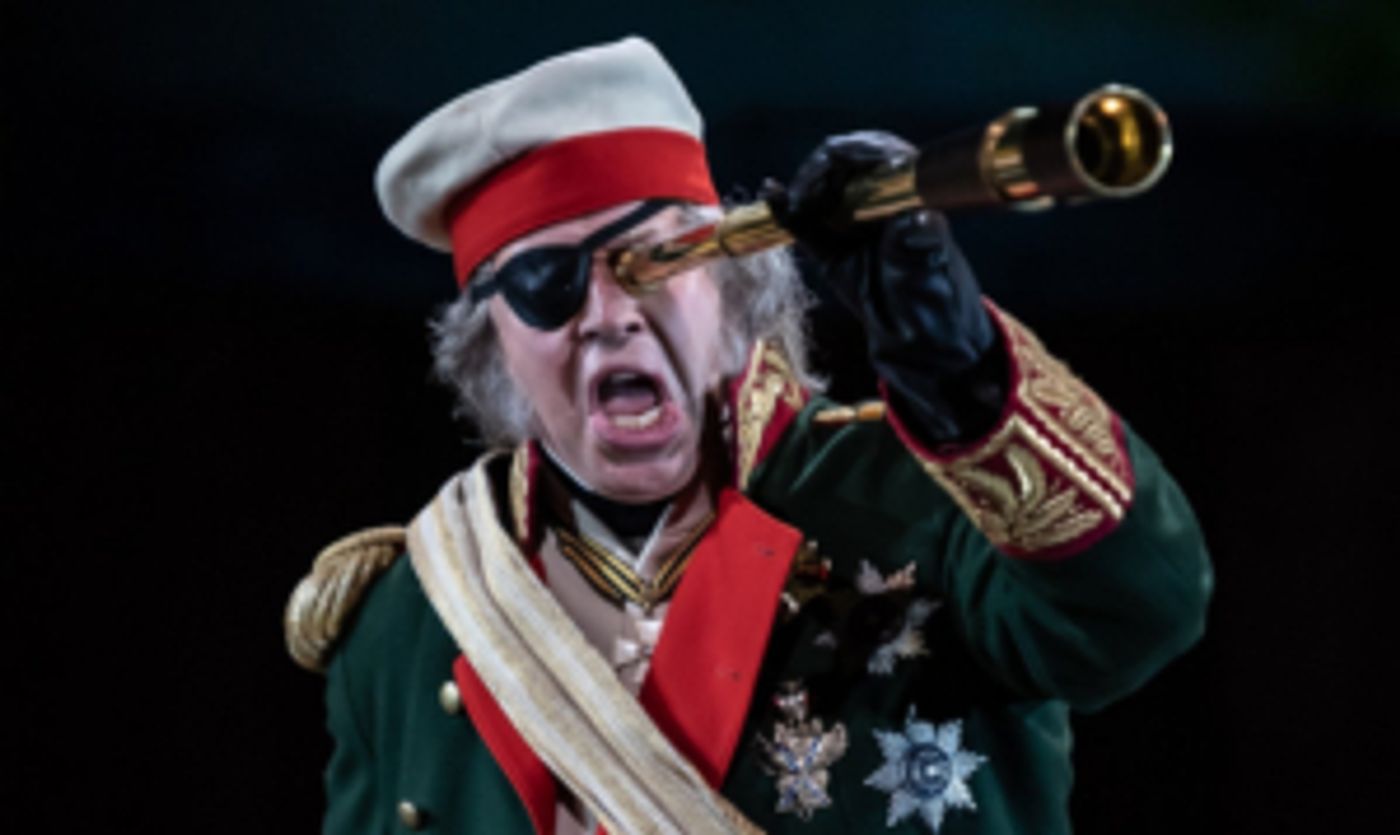Review: WAR AND PEACE, Royal Opera House

![]() It starts with a bang - as so much in Russian history does - and the fireworks, personal and political, never let up as we sweep over Napoleon's ill-fated invasion of Tolstoy's homeland.
It starts with a bang - as so much in Russian history does - and the fireworks, personal and political, never let up as we sweep over Napoleon's ill-fated invasion of Tolstoy's homeland.
Of course, we get the parallels with the Nazi invasion of World War II - in the 1940s when he was composing the opera, Prokofiev had to insert them whether he wanted to or not - and we also get the message that Russia has not, is not and will not be trifled with, especially when its own soil is threatened. His Excellency The Russian Ambassador is Honorary Patron of the production after all.
Enough of the geopolitics. Much of the opera concerns itself with the personal, the tides of history ebbing to and fro in the background. Amidst the cavalcade of characters (the source material has 599) we follow Pierre Bezukhov most closely, often seeing things through his naive eyes, as a good man seeks his true self in a world controlled by bad men. Mark Le Brocq sings Pierre with wonderful clarity and assumes an air of melancholy without ever suggesting self-pity.
His unrequited love is Princess Natasha Rostov (Lauren Michelle singing sublimely and shimmeringly sexy) who vacillates between the men who court her, her head turned by the Parisian decadence of Pierre's brother-in-law, the dissolute Anatole (Adrian Dwyer) tempting her away from the man who loves her uncomplicatedly and unequivocally - Prince Andrei Bolkonsky (Jonathan McGovern).
These doomed love triangles slide into the background in the second half, as Napoleon's armies loom on Moscow's horizon. We go into the war council where General Kutuzov (a magnificently passionate and charismatic Simon Bailey) makes the fateful decision to burn Moscow and trap the French in the snows of the brutal Russian winter. It works - but at what cost?
The chorus show us, Peasants, soldiers, women armed with pitchforks collectively face the deprivations of Kutuzov's tactic with stoicism and an abiding love for Russia. And, when one hears the voices raised together, one understands why.
Pierre, saved at the last moment by partisans, finds himself in the simple example of fellow Russian's suffering - and so the aristocrat and the peasant find common cause in their humanity and in Russia's existential struggle.
This Welsh National Opera production is long - well, it would be wouldn't it? - but the episodic structure keeps the pace up and the superb video work from David Haneke complements the torrents of humanity before our eyes (beautifully costumed by Marie-Jeanne Lecca). The set pieces (opulent balls, dance sequences, ambushes) stand as plays within plays, each one an event in its own right.
Sung in English with surtitles available but not often required, the concentration levels demanded are manageable - but I'd advise a decent night's sleep as preparation all the same!
Director Sir David Pountney and conductor Thomáš Hanus push the cast and the splendid orchestra hard, but what emerges is an accessible and faithful monument of not just Russian culture, but world culture. You might not want to see it every night - but you might want to see it once in each decade, interpreting it anew as the Bear stretches and yawns and looks West for threats - and opportunities.
The Welsh National Opera's War and Peace continues at the Royal Opera House until 24 July.
Photo Clive Barda
Reader Reviews

Videos

